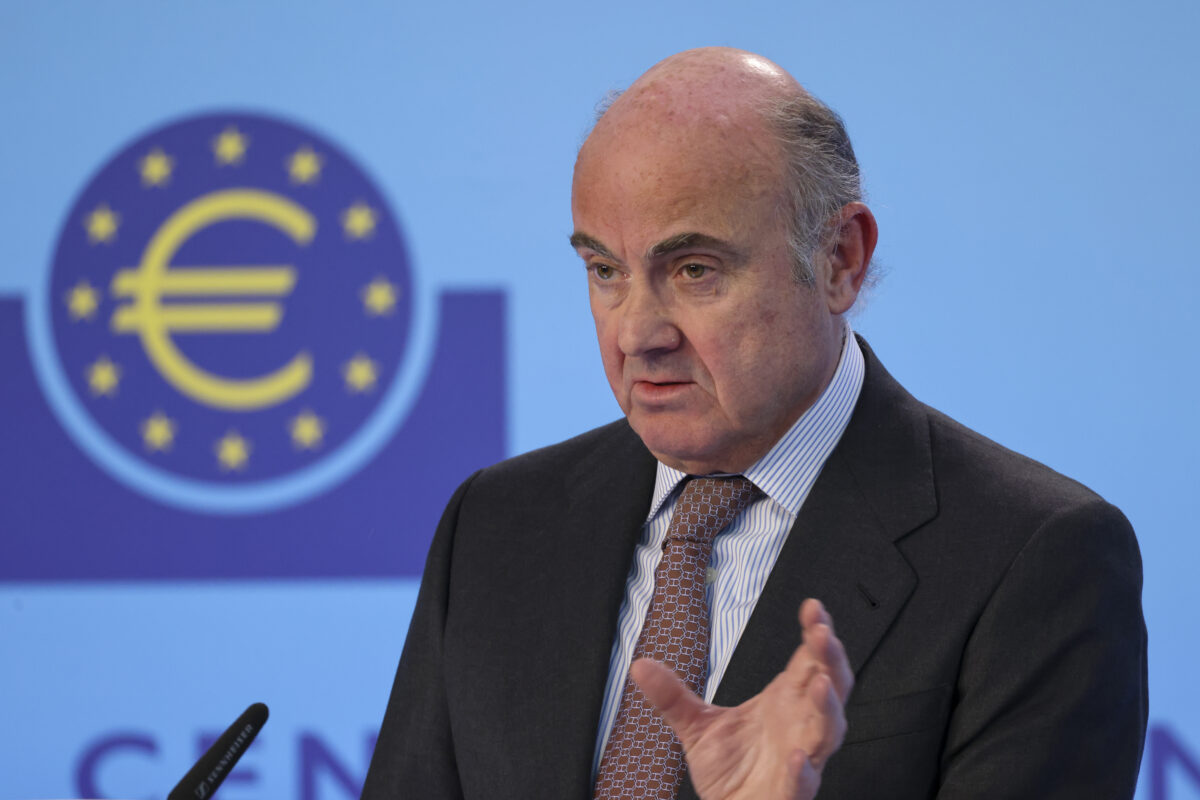Die Bank of England hat soeben mitgeteilt, dass sie den Leitzins einstimmig unverändert bei 0,1 Prozent belässt. Die Anleihekaufprogramme laufen wie bereits bekannt weiter. Die aktuelle Geldpolitik sei der Situation angemessen. Die Inflation in Großbritannien werde laut Bank of England bis zu 4 Prozent im 4. Quartal dieses Jahres ansteigen, aber wieder auf 2 Prozent zurückkommen. Britische Banken seien bereit falls notwendig Negativzinsen einzuführen – das bedeute aber nicht, dass dies eine bevorzugte Möglichkeit sei. Pfund vs US-Dollar reagiert aktuell mit +21 Pips auf 1,3944.
Hier der Erläuterungstext der Bank of England im Wortlaut:
The Bank of England’s Monetary Policy Committee (MPC) sets monetary policy to meet the 2% inflation target, and in a way that helps to sustain growth and employment. At its meeting ending on 4 August 2021, the Committee judged that the existing stance of monetary policy remained appropriate. The MPC voted unanimously to maintain Bank Rate at 0.1%. The Committee voted unanimously for the Bank of England to maintain the stock of sterling non-financial investment-grade corporate bond purchases, financed by the issuance of central bank reserves, at £20 billion. The Committee voted by a majority of 7-1 for the Bank of England to continue with its existing programme of UK government bond purchases, financed by the issuance of central bank reserves, maintaining the target for the stock of these government bond purchases at £875 billion and so the total target stock of asset purchases at £895 billion.
The Committee’s updated projections for activity and inflation are set out in the accompanying August Monetary Policy Report. They assume that, despite the spread of the Delta variant, the impact of Covid on the UK economy fades further over time. They are also conditioned on the market path for interest rates.
Global GDP growth is estimated to have risen sharply in 2021 Q2, as Covid vaccination programmes gathered pace and restrictions were eased further. Partly reflecting the spread of the Delta variant, global growth in Q3 is expected to expand at a slower pace than anticipated in the May Report. Global price pressures have continued to build, reflecting the speed and unevenness of the recovery in activity, and disruptions to supply chains.
UK GDP is expected to have risen by 5% in 2021 Q2, leaving it around 4% below its pre-pandemic level and slightly stronger than expected in the May Report. After the MPC’s previous meeting, the number of Covid cases continued to rise but has subsequently shown signs of falling back, although there has been a sharp increase in the number of people being asked to self-isolate temporarily. The majority of remaining domestic Covid restrictions have now been lifted. Faster indicators of household spending have been broadly flat, at close to pre-Covid levels, but the housing market has remained strong. GDP is expected to grow by around 3% in Q3, somewhat weaker than expected in the May Report, with a small negative impact from recent developments in the pandemic. UK GDP is projected to recover further over the remainder of the year, reaching its pre-pandemic level in 2021 Q4, with demand growth boosted by a waning impact from Covid. Further out, the pace of GDP growth is expected to slow towards more normal rates, partly reflecting the gradual tightening in the stance of announced fiscal policy.
The Labour Force Survey unemployment rate was 4.8% in the three months to May, 1 percentage point higher than at the end of 2019. The inactivity rate was also 1 percentage point above its level at the end of 2019. The number of full and part-time furloughed jobs has continued to decline as demand has recovered, but remained at around 2 million at the end of June. The stock of vacancies has increased further, as have indicators of recruitment difficulties. There appear to have been difficulties in matching available jobs and workers. These frictions are for a period reducing effective supply in the economy. Overall, the MPC judges that spare capacity has been eroded over the past couple of quarters, as demand has outstripped growth in effective supply. Frictions in the labour market are judged likely to dissipate over the forecast period, boosting growth in effective supply capacity. There is uncertainty around these judgements, including how the economy will adjust to the end of the furlough scheme.
Private sector regular pay in the three months to May was over 7% higher than a year earlier, and annual growth is projected to have peaked at around 8½% in 2021 Q2. Adjusted for the impact of the furlough scheme, the changing composition of employment during the pandemic and annual base effects, underlying pay growth appears to continue to be around pre-Covid rates.
Twelve-month CPI inflation rose to 2.5% in June, above the MPC’s 2% target and 0.8 percentage points higher than expected in the May Report. Core CPI inflation has also risen further, to 2.3%, as building global input cost pressures have been passed through to some consumer goods prices and, to a lesser degree, the reopening of the economy has led to a pickup in some consumer services and goods prices. CPI inflation is projected to rise temporarily in the near term, to 4% in 2021 Q4, owing largely to developments in energy and other goods prices, before falling back to close to the 2% target.
The Committee’s central expectation is that current elevated global and domestic cost pressures will prove transitory. Nonetheless, the economy is projected to experience a more pronounced period of above-target inflation in the near term than expected in the May Report. And, alongside temporary constraints on supply, the rapid recovery in demand has eroded spare capacity such that the economy is projected to have a margin of excess demand for a period. In the medium term, conditioned on the market path for interest rates, inflation is projected to fall back to close to the 2% target, and demand and supply are expected to return broadly to balance.
The MPC has had policy guidance in place specifying that it does not intend to tighten monetary policy at least until there is clear evidence that significant progress is being made in eliminating spare capacity and achieving the 2% inflation target sustainably. Some members of the Committee judge that, although considerable progress has been made in achieving the conditions of that guidance, the conditions are not yet met fully. The other members judge that the conditions of the guidance have been met fully, but note that the guidance made clear that these have only ever been necessary not sufficient conditions for any future tightening in monetary policy.
All members confirm that in judging the appropriate stance of monetary policy, the Committee will, as always, focus on the medium-term prospects for inflation, including medium-term inflation expectations, rather than factors that are likely to be transient. In particular, the Committee will not put undue weight on capacity pressures that are frictional in nature and likely to be temporary. The Committee will be monitoring closely the incoming evidence regarding developments in the labour market, and particularly unemployment, wider measures of slack and underlying wage pressures. In addition, there remain two-sided risks around the central path for inflation in the medium term. Risk management considerations continue to have some force.
The Committee judges that, should the economy evolve broadly in line with the central projections in the August Monetary Policy Report, some modest tightening of monetary policy over the forecast period is likely to be necessary to be consistent with meeting the inflation target sustainably in the medium term.
At this meeting, the Committee judged that the existing stance of monetary policy remained appropriate.

Die Zentrale der Bank of England in London. Foto: Diliff / Wikipedia (CC BY-SA 3.0)
Kommentare lesen und schreiben, hier klicken












